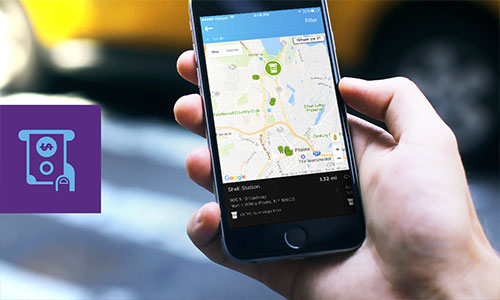More than any other time in your life, college is the perfect opportunity to travel, both for fun and to learn about other cultures. As a student, you’re already focused on learning and shaping your worldview, and traveling gives you the opportunity to do that in a way classrooms and books just can’t.
But you’re already spending a lot on tuition and rent, so spending on non-essentials is tough and travel can often feel more like a fantasy than an achievable goal. Fortunately, it’s absolutely possible to travel on a budget without sacrificing the great experiences that make it worth it in the first place.
Here are eight tips that will help you get out there—without breaking the bank.
1. Look Beyond the Hotels
It used to be that unless you were staying with friends or family, you had to get a hotel room when you traveled. Websites like Airbnb, Couchsurfing, FlipKey, HomeAway, VRBO, and others have changed that for good. Through these sites and others, it’s possible to rent a local’s entire apartment or spare room, often at a lower cost than that of a hotel room in a major city.
You can even find opportunities to sublet an apartment for an extended stay, which will still likely be cheaper than paying a per-night rate at a hotel. Additionally, you’ll have access to a kitchen, which means you can cook your own meals to save even more money.
Of course, be sure to do your research on whomever you choose to rent from, and only use reputable websites like the ones listed above to find couchsurfing or apartment rental opportunities.
2. Get off the Beaten Path
Even the most exotic destinations have tourist traps. As the name implies, these shops and eateries are specifically geared toward tourists, and they are usually extremely overpriced.
Don’t just go for the first few shops and restaurants you see when you get off the plane—get off the beaten path and go where the locals go. Not only are these restaurants, shops and markets often cheaper, but they can offer a much more authentic cultural experience. Before you leave for your vacation, do some research using sites like Lonely Planet, VoulezVousDiner, Fodor’s Travel, Frommer’s Travel Guide or even your destination’s Reddit message board to see where locals like to go, or simply ask around once you get to where you’re going.
As a precaution, avoid asking a hotel concierge for recommendations. Hotels are often paid by local establishments to recommend certain businesses to guests, so you may not be getting a recommendation that is in your—or your wallet’s—best interests.
3. Go During the Offseason
Whether it’s a cold-climate city shedding tourists for the winter, or a tropical destination entering seasonal downtime during back-to-school months, almost any vacation spot will have an offseason.
During this time, hotels, restaurants, attractions and even airlines are feeling the pinch of having fewer customers. To attract people during these slow periods, businesses will offer discounts that put even the priciest locales within reach of a budget-conscious traveler. Best of all, you can visit your favorite attractions without the bustle of the peak-season crowds.
4. Exchange Your Currency Ahead of Time
Most credit card companies will allow you to use your card abroad with few restrictions, though there may be fees associated with foreign transactions. That said, it’s still useful to have physical currency on hand during an extended stay in a foreign country. To do that, you’ll have to exchange your national currency for that of your destination’s.
In the bustle of planning a trip, it’s easy to forget to do this until the last minute. One of the most common mistakes people make when traveling is trying to exchange currency at the airport, just before departure time. Exchanging your currency at the airport, however, will almost guarantee that you’re not going to get the best rate possible due to the steep fees they charge.
Instead, seek out a few banks that offer currency exchange in advance of your trip. This will allow you to shop around for the best rate, while avoiding expensive fees.
5. Make a List of Your “Must-do” Attractions and Events
No matter where you go, it’s unlikely that you’ll be able to take in everything the locale has to offer in just one trip. This creates a dilemma: You don’t want to miss anything, but you also don’t want to spread yourself too thin and fail to enjoy any one attraction to its fullest potential.
Before you leave for your vacation, research all of the attractions in the area as well as any events that are scheduled during your stay. From there, narrow it down to just a few of the must-do activities. By focusing on the most value-adding attractions, you’ll be able to enjoy them a lot more without worrying about missing out on anything else.
This is also a great money-saving strategy: When you aren’t frantically trying to do everything, you can plan travel routes more easily and avoid being sidetracked into costly side excursions.
6. Focus on the Memories, not Souvenirs
It’s only natural to want something to remember your trip by, but souvenirs aren’t the best way to do it. While it’s certainly OK to pick up one or two small gifts for close friends or family who didn’t get to join you, most typical souvenirs will be sold at tourist locations with large markups on all of their products. These knick-knacks can also take up valuable space in your luggage.
Whether you travel purely for fun, or for expanding your cultural knowledge, your focus should be on creating experiences, not collecting souvenirs. Take plenty of pictures—which are free if you use your phone—and let those preserve the memories of your vacation.
7. Set a Daily Budget and Stick to It
It’s easy to see a vacation as a time to treat yourself, but that doesn’t mean you should throw money at everything that comes your way. It might feel somewhat childish to think that you have an allowance, but you have to remember that you’re traveling on a budget. Set a daily limit for how much you can spend and don’t exceed it.
The last two tips—focusing on the must-do activities and prioritizing memories over souvenirs—will make this one a lot easier. If you can go into your vacation knowing exactly what you want to spend your money on, you’ll know that you can say no to the little things that don’t matter much.
8. Use Points if You Have Them
Lodging and airfare are usually the biggest expenses you can incur while traveling, so finding a way to decrease or eliminate those costs will make your vacation much more affordable.
If you have a credit card rewards program, there’s a good chance that you’ve been earning points that can be redeemed for airline miles or a hotel stay.
The choice between valuable travel experiences and preserving your bank account is a false one. You can travel on a budget; it just takes careful planning, a little creative thinking and some willpower to make it happen.





Comments Section
Please note: Comments are not monitored for member servicing inquiries and will not be published. If you have a question or comment about a Quorum product or account, please visit quorumfcu.org to submit a query with our Member Service Team. Thank you.